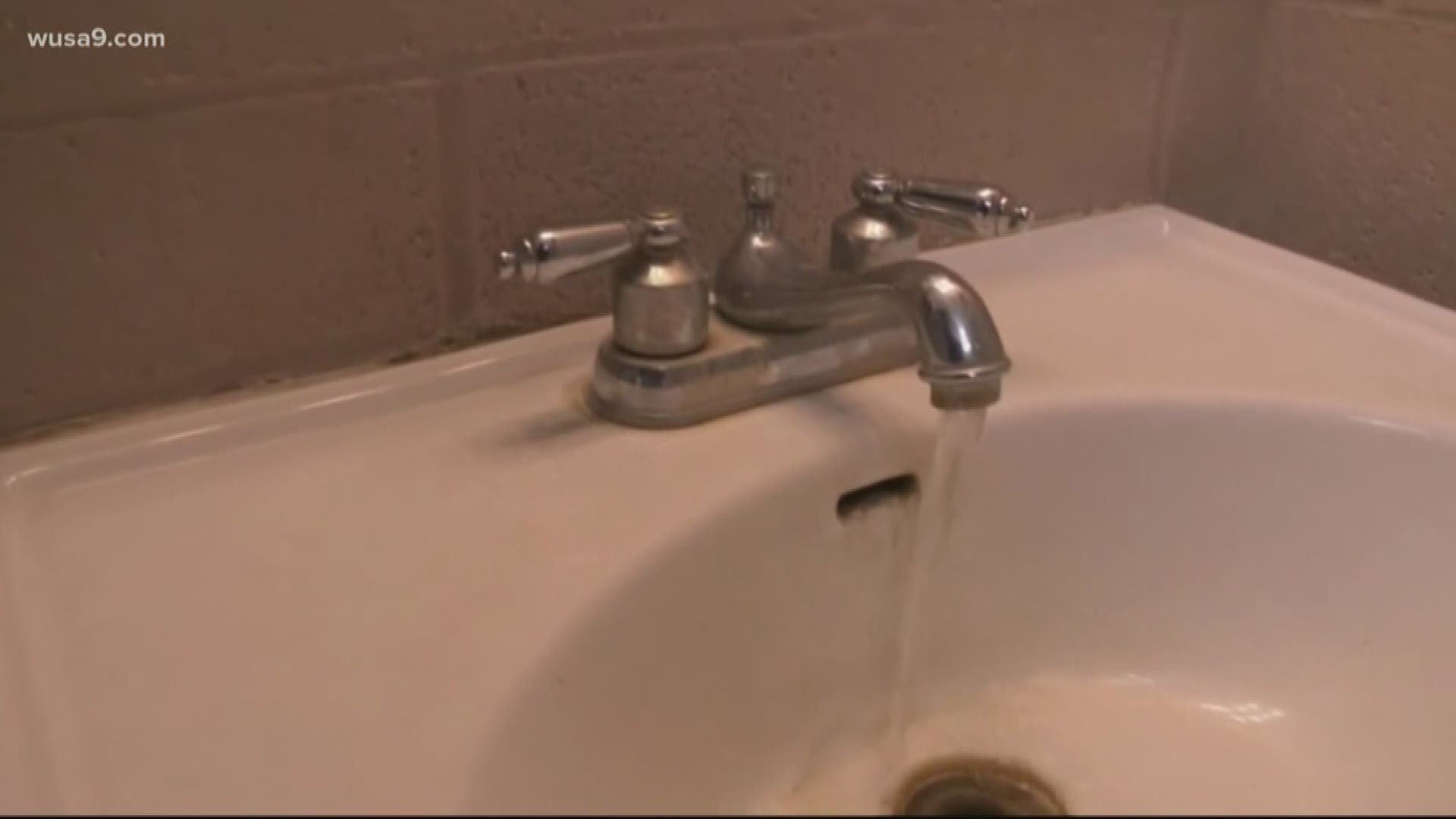LAUREL, Md. — One of Maryland's largest water utilities announced that it will test for substances known as "forever chemicals" in the wake of an independent study from the Environmental Working Group that found the substances in samples from Prince George's County and Washington D.C.
WSSC Water will resume testing its water for the presence of Per-and Polyfluoroalkyl (PFAS) substances at its Potomac and Patuxent Water Filtration Plants.
PFAS is associated with some types of cancer and affect the immune system, according to the US Centers for Disease Control.
"New laboratory tests commissioned by EWG have for the first time found the toxic fluorinated chemicals known as PFAS in the drinking water of dozens of U.S. cities, including major metropolitan areas. The results confirm that the number of Americans exposed to PFAS from contaminated tap water has been dramatically underestimated by previous studies, both from the Environmental Protection Agency and EWG’s own research," the report said.
The dangers of PFAS are the subject of the new film Dark Waters, based on the true story of contamination in West Virginia that manufacturer DuPont was eventually found liable for.
"This proactive measure will provide peace of mind to our customers and ensure our water continues to meet all strict federal Safe Drinking Water Act standards," WSSC Water General Manager and CEO Carla A. Reid said.
Reid noted that WSSC water never exceeded the US Environmental Protection Agency's threshold for a health advisory on PFAS substances during extensive water quality testing for six PFAS compounds, from July 2013 through March 2014, and again from April 2015 through October 2017.
However, concern over the compounds has been rising, and other states such as California and New Jersey have adopted standards far stricter than the EPA's health advisory limit of 70 parts-per-trillion, according to the EWG.
EWG said those states have set a 13 part-per-trillion standard.
According to reporting by The Intercept, there is growing concern that PFAS levels below 1 part per trillion could be associated with cancers in laboratory animals.
According to samples collected by EWG, a single WSSC Water sample from Prince George's County in 2019 tested at 17.8 parts-per-trillion. Samples collected in D.C. tested at 21.7 parts-per-trillion.
Water in the District of Columbia is supplied by DC Water.
In a written statement, DC Water spokesman John Lisle said: "We are committed to protecting public health and tap water in the District. We are monitoring the current research on treatment, health effects, and sources of these compounds that may enter the Potomac River. The (EWG) report confirms the PFAS detected in tests conducted in DC are at levels well below any established EPA health advisory for these compounds."
WSSC Water is a separate utility that serves 1.8 million customers in Montgomery County and Prince George's County in Maryland.
According to WSSC Water, PFAS are a group of man-made chemicals that were developed in the 1940s to be fire, oil, grease, water and stain resistant. The chemicals are found in a wide array of consumer and industrial products, including non-stick cookware, stain repellent, dental floss, cleaning products and cosmetics. Some of the most common means of PFAS entering the environment are discharges from PFAS manufacturing and processing facilities, and from facilities that use the product in large quantities such as airports and military installations.
Despite the concern and the additional testing it has announced, WSSC Water stands by the safety and quality of its water.
"WSSC Water is safe and customers should not think twice about the safety of their drinking water," Reid said. "Our top priority is public health and safety, and this proactive measure will provide peace of mind to our customers and ensure our water continues to meet all strict federal Safe Drinking Water Act standards. In our 102 years of fulfilling our clean-water mission, WSSC Water has never had a single drinking water quality violation and we pledge this exceptional level of excellence will continue. We strongly encourage continued federal and state action to clean up PFAS-contaminated sites to prevent these chemicals from entering drinking water supplies. We also stand ready to implement any additional robust testing measures should the EPA require water utilities to test for the presence of these compounds."
WSSC Water performs 500,000 laboratory tests per year on samples, according to a statement from the utility.
Environmental scientists from The Ecology Center also tested several artificial turf fields in D.C. for the presence of PFAS, including schools fields and parks. The main concern is what happens when chemicals found in artificial grass blades wash into our water supply. Test results on samples collected in October are expected within weeks.
Customers with questions or concerns about water quality can call WSSC Water at 301-206-4002.


